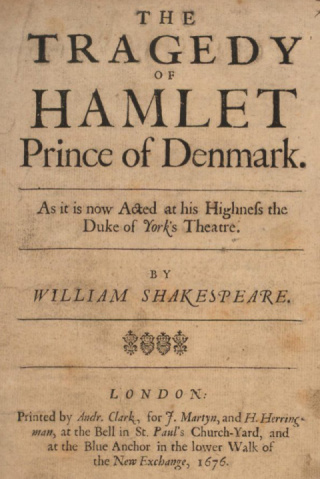“To be, or not to be,” the opening line of Hamlet’s mindful soliloquy, is one of the most thought-provoking quotes of all time. The monologue features the important theme of existential crisis.
William Shakespeare is considered to be one of the most important English-language writers. His plays and poems are read all over the world.
The “To be, or not to be” quote is taken from the first line of Hamlet’s soliloquy that appears in Act 3, Scene 1 of the eponymous play by William Shakespeare, “Hamlet”.
The full quote, “To be, or not to be, that is the question” is famous for its open-ended meaning that not only encompasses the thoughts raging inside Hamlet’s mind but also features the theme of existential crisis.
Learning further the soliloquy reveals a variety of concepts and meanings that apply to all human beings.
For this reason, the quote has become a specimen for understanding how Shakespeare thought.
“To be, or not to be” full quote:
To be, or not to be, that is the question,
Whether ’tis nobler in the mind to suffer
The slings and arrows of outrageous fortune,
Or to take arms against a sea of troubles,
And by opposing end them? To die: to sleep;
No more; and by a sleep to say we end
The heart-ache and the thousand natural shocks
That flesh is heir to, ’tis a consummation
Devoutly to be wish’d. To die, to sleep;
To sleep: perchance to dream: ay, there’s the rub;
For in that sleep of death what dreams may come
When we have shuffled off this mortal coil,
Must give us pause: there’s the respect
That makes calamity of so long life;
For who would bear the whips and scorns of time,
The oppressor’s wrong, the proud man’s contumely,
The pangs of despised love, the law’s delay,
The insolence of office and the spurns
That patient merit of the unworthy takes,
When he himself might his quietus make
With a bare bodkin? who would fardels bear,
To grunt and sweat under a weary life,
But that the dread of something after death,
The undiscover’d country from whose bourn
No traveller returns, puzzles the will
And makes us rather bear those ills we have
Than fly to others that we know not of?
Thus conscience does make cowards of us all;
And thus the native hue of resolution
Is sicklied o’er with the pale cast of thought,
And enterprises of great pith and moment
With this regard their currents turn awry,
And lose the name of action.–Soft you now!
The fair Ophelia! Nymph, in thy orisons
Be all my sins remember’d.
© Times of U

